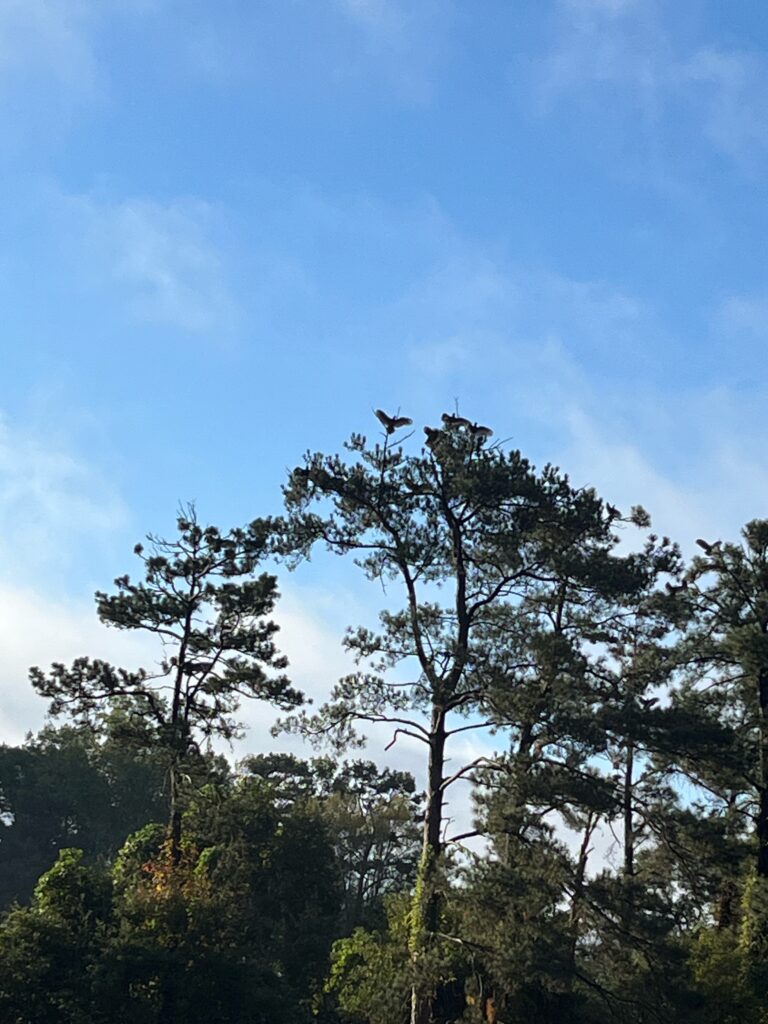
As the sun rose over the tree line, event attendees craned their necks to watch the vultures spread their wings to sunbathe. The early morning light filtering through the spread feathers of their wings cast them in an angelic glow.
Vultures may get a bad reputation, but the Athens-Clarke County Solid Waste Department is trying to change that with an annual fall festival it started a decade ago.
The 10th annual Vulture Festival was held at the Athens-Clarke County Landfill on Oct. 14.
What is Vulture Festival?
While the event focused on vultures, it also acts as a showcase for the solid waste department.
Volunteer Susan Harris has been involved with Vulture Festival since its beginning. Her daughter, Suki Janssen, who is the Solid Waste Department Director, greeted people at the entrance and explained the activities held.
“This is really focused on the landfill more than anything,” Harris said.
There was a guided sunrise bird walk to look at all the species of birds that the landfill attracts. Interwoven, there were multiple tours of the landfill and composting facilities. There was painting, people selling merchandise, informational booths, researchers and a bird show.
Event attendee Felix Scheyer walked in with no expectations and was surprised by what he learned about vultures and the Solid Waste Department.
“I felt like I was on a sixth-grade science fair, like field trip. There were booths teaching me about the different types of vultures.” said Scheyer.
Eliana Chipps is a volunteer with the Auburn University Raptor Center. The raptor center held an educational bird show for children. She is the primary caretaker of Kramer the vulture.
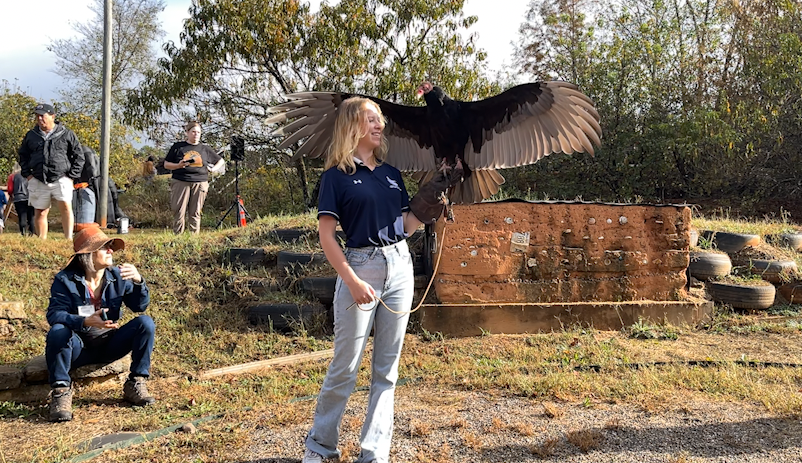
Vultures can often be seen as dirty birds but that is not the case. According to Chipps, vultures have a stomach pH of 1 so what they eat comes out cleaner than it went in. They also defecate onto their feet to disinfect them.
“They’re the reason we have so much disease eradication…[and] the reason we stay clean,” said Chipps.
A Bird with Nuance
However, with all the good these birds provide to the environment, they can be destructive.
Jennifer Brown, a graduate research assistant in the Warnell School of Forestry, presented her research on black vultures and how to study their behaviors.
According to Brown, they cause troublesome human-vulture conflict, from chewing on windshield wipers to vinyl shingles. They can also causing cattle depredation by attacking and killing calves.
However, it’s a fine line for human interaction.
So because they perform such a valuable ecosystem service, we do need them around. However, some of their natural behaviors are problematic for us. And we need to maintain a good relationship with this bird,” said Brown.
Despite their behavior, this bird is vital to our environment. People took away the information they learned about vultures and about their own waste habits.
“I [was] able to slow down and really look at how my personal waste is contributing to landfills, but also how landfills are converted into like nature facilities and how they contribute to those greater ecosystems wherein vultures … are able to be impacted by our waste,” said Scheyer.
One of the most misunderstood native species is also one of the most vital.
The Vulture Festival cast the birds in a new light, celebrating the role they play in keeping our ecosystems clean and humans healthy.
Blake Campbell is a senior journalism major, fashion merchandising minor and new media certificate student at the University of Georgia.


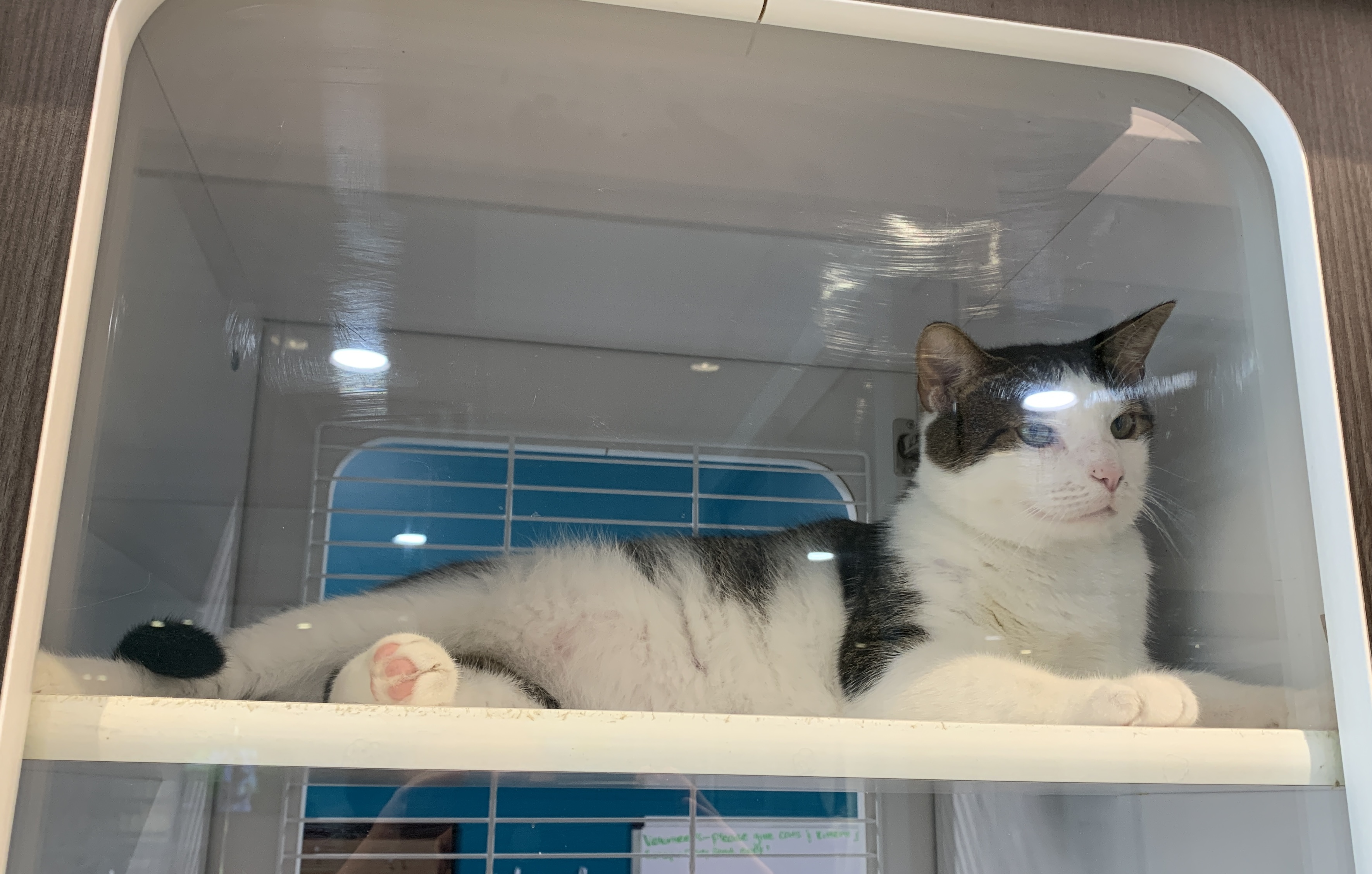

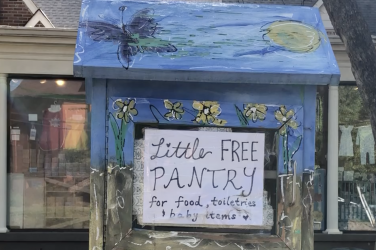
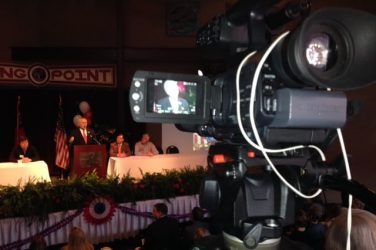
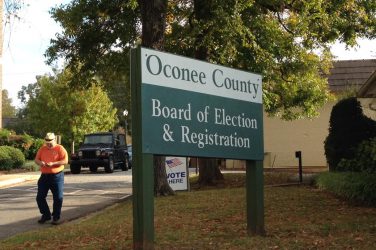

Show Comments (0)